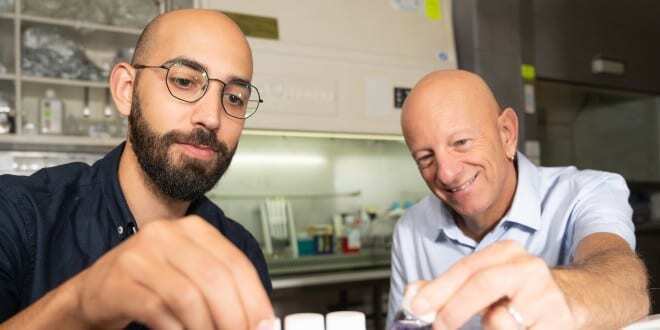A multidisciplinary team of Ben-Gurion University of the Negev scientists has invented an artificial nose that detects a variety of bacteria.
There are numerous potential applications for an artificial nose capable of continuous bacterial monitoring – an accomplishment that was deemed elusive until now.
“We invented an artificial nose based on unique carbon nanoparticles (“carbon dots”) capable of sensing gas molecules, particularly detecting bacteria through the volatile metabolites they emit to the air,” said lead researcher Professor Raz Jelinek.
The artificial nose uses chemical reactions and electrodes to “smell” bacteria. Technically, it records the capacitance changes induced upon binding vapor molecules onto interdigitated electrodes (IDEs) coated with carbon dots exhibiting different polarities.
Machine learning can train the sensor to identify different gas molecules, individually or in mixtures, at high accuracy.
Some of the potential applications include food quality – detecting spoiled food; identifying bacteria in hospitals and public buildings; disease diagnostic tests through breath; speeding up testing of lab samples; identifying “good” vs. pathogenic bacteria in the microbiome; identifying poisonous gases, and environmental monitoring.
Other researchers on the team included: Ph.D. student Nitzan Shauloff, Dr. Ahiud Morag, Dr. Seema Singh, and Ravit Malishev of the Department of Chemistry and Prof. Lior Rokach, Chair of the Department of Software and Information Systems Engineering.



